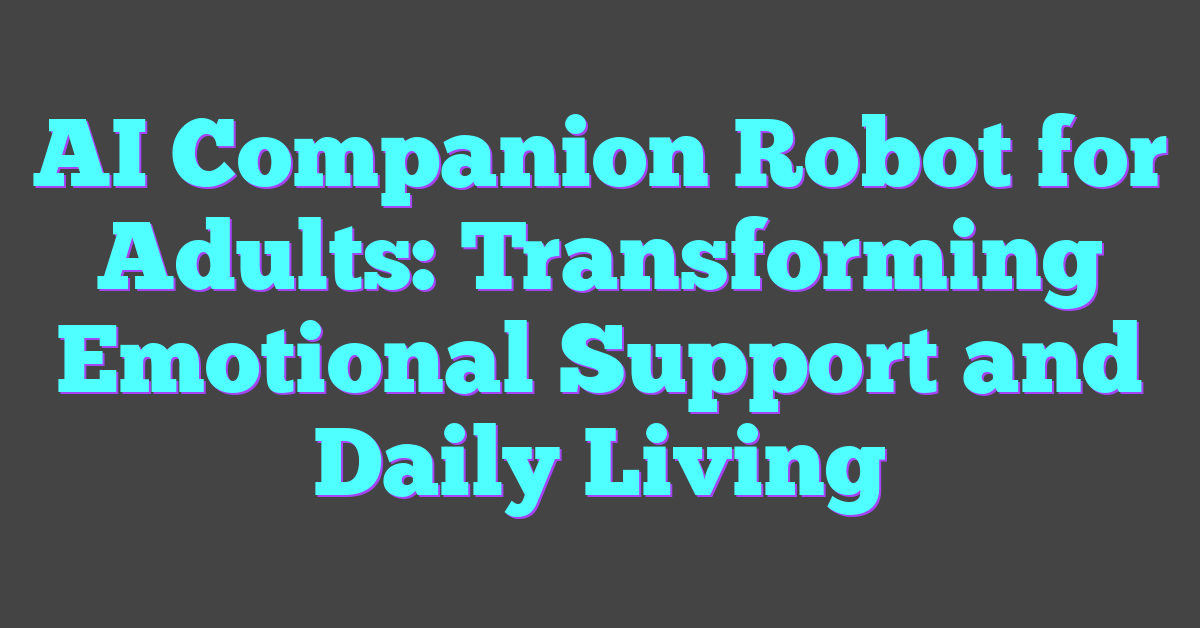Ever wondered if artificial intelligence could help you make a profit in the stock market? AI trading has been gaining traction, promising to revolutionize the way people invest. By using complex algorithms and vast amounts of data, AI systems aim to predict market movements more accurately than human traders.
But is AI trading truly profitable? While some investors swear by it, others remain skeptical. This article delves into the potential benefits and pitfalls of AI trading, helping you decide if it’s the right strategy for you.
Understanding AI Trading
AI trading, also known as algorithmic trading, leverages artificial intelligence to execute trades. This approach aims to enhance investment strategies by utilizing complex algorithms and extensive datasets.

What Is AI Trading?
AI trading refers to using advanced algorithms to make trading decisions. These algorithms analyze market data, identify patterns, and execute trades without human intervention. By processing large volumes of data, AI trading systems aim to outperform traditional methods.
How AI Trading Systems Work
AI trading systems operate through several key components:
- Data Collection: Systems gather historical and real-time market data from various sources, including stock exchanges, financial news, and economic reports. For example, they might collect stock prices, trading volumes, and interest rates.
- Data Analysis: Machine learning algorithms process the collected data to identify patterns and trends. For instance, they might detect correlations between specific stock movements and economic indicators.
- Prediction Modeling: AI models, such as neural networks and decision trees, predict future market movements based on the analyzed data. For example, a model might forecast a stock price increase based on historical trends and current market conditions.
- Execution: The trading system executes buy or sell orders based on the model’s predictions. This process occurs with minimal latency to capitalize on market opportunities.
- Evaluation and Adaptation: AI trading systems continuously monitor their performance and adjust their algorithms to improve accuracy. For instance, they might tweak parameters to better align with changing market conditions.
By automating data analysis and trade execution, AI trading aims to make faster, more informed decisions compared to human traders. These systems constantly evolve, incorporating new data and refining their algorithms to enhance profitability.
Benefits of AI Trading
AI trading offers numerous advantages that can significantly enhance trading strategies.
Accuracy and Speed
AI trading systems execute trades with high accuracy and speed. They analyze vast datasets within milliseconds, making decisions based on real-time market trends. These systems outperform human traders in both precision and reaction time, as confirmed by research from the Journal of Finance. For example, algorithms can quickly identify patterns in stock prices and execute trades to capitalize on those patterns, often leading to better returns and reduced losses. By eliminating human error and leveraging computational power, AI enables more efficient trading operations.
Scalability and Diversification
AI platforms scale trading activities effortlessly. By automating trade execution across various markets and asset classes, they enable traders to diversify their portfolios effectively. An AI system can monitor multiple assets simultaneously, optimizing trading strategies on a broader scale. According to a report by Barclays, diversified portfolios managed by AI traders often exhibit reduced volatility and improved risk-adjusted returns. For instance, AI can allocate investments across stocks, bonds, and commodities based on predictive analytics, ensuring a balanced approach that maximizes profitability while minimizing risk.
Challenges and Risks of AI Trading
AI trading offers numerous benefits, yet it’s not without challenges and risks. Investors must understand these aspects to evaluate AI trading strategies effectively.
Technical and Operational Risks
AI trading relies on cutting-edge technology, requiring robust infrastructure. System failures, such as network outages or software glitches, can disrupt trading activities and result in financial losses. Another significant risk is data integrity. AI systems depend on vast amounts of data; if this data is inaccurate or incomplete, it can lead to erroneous trading decisions. Additionally, algorithmic models require continuous updates and monitoring to adapt to market changes and prevent obsolescence.
Market Volatility and Predictability
AI trading systems often encounter difficulties during high market volatility. Rapid price swings can lead to unexpected outcomes, as algorithms may struggle to interpret and react appropriately. During extreme market conditions, such as financial crises, AI models may fail to predict sudden changes or adapt quickly, leading to substantial losses. Moreover, market predictability relies on historical data patterns; if market dynamics shift significantly, past data may no longer be relevant, reducing the effectiveness of AI-based predictions.
Profitability Analysis of AI Trading
AI trading has attracted considerable attention for its potential to deliver significant profits. Examining case studies and success stories, as well as comparing AI trading with traditional methods, reveals a clearer picture of its profitability.
Case Studies and Success Stories
Several high-profile cases demonstrate AI trading’s profitability. Renaissance Technologies, known for its Medallion Fund, consistently outperforms the market using complex algorithms and AI (Reuters, 2021). Between 1988 and 2018, the fund delivered annualized returns of around 66%. Another example is Two Sigma Investments which utilizes machine learning and AI. This firm manages over $60 billion in assets, achieving steady growth.
Machine-learning algorithms also show promise across smaller and diverse trading environments. For instance, Sentient Technologies’ AI hedge fund outperformed several discretionary hedge funds, with a double-digit return in its initial years. These instances underscore AI’s potential to identify patterns and execute trades more efficiently than human counterparts.
Comparative Profitability with Traditional Trading
Comparisons between AI trading and traditional methods highlight distinct advantages. AI systems analyze vast datasets quickly, identifying opportunities in milliseconds, far outpacing human traders’ capabilities. According to a study by JPMorgan (2018), an estimated 60% of trades over $10 million were executed using algorithms, indicating a shift towards AI mechanisms.
Traditional trading relies heavily on human intuition and experience, which can lead to inconsistencies. In contrast, AI trading minimizes emotional biases and improves decision-making consistency. A report by McKinsey (2020) found that AI trading systems reduce operational risks and cut costs, positively impacting profitability margins.
While traditional trading struggles with high-frequency data processing and maintaining constant vigilance, AI trading thrives under these conditions. Real-time data analysis, backtesting algorithms, and evolving learning models enable AI trading to adapt and excel amid changing market dynamics, further securing its profitability edge over conventional approaches.
Future of AI Trading
AI trading is transforming the financial markets, paving the way for a dynamic and increasingly automated future. This section delves into current trends, innovations, and regulatory considerations that shape the future of AI trading.
Trends and Innovations
Algorithmic Advancements: AI trading systems are becoming more sophisticated, leveraging deep learning and neural networks to improve accuracy in predicting market trends. For instance, reinforcement learning algorithms enable continuous learning from market data, refining trading strategies over time.
Quantum Computing: Quantum computing holds the potential to revolutionize AI trading by processing complex calculations at unprecedented speeds. Firms that integrate quantum algorithms could gain a substantial competitive edge in the market.
Big Data Integration: AI traders are increasingly incorporating vast amounts of unstructured data (e.g., social media sentiment, news feeds) to inform trading decisions. This multifaceted data approach enhances prediction models and identifies emerging market opportunities.
Collaborative AI: Collaborative systems that combine AI with human expertise are gaining traction. These hybrids leverage AI’s computational power and human intuition, offering a balanced approach to trading.
Regulatory and Ethical Considerations
Regulatory Frameworks: Governments and regulatory bodies are developing frameworks to oversee AI trading. These regulations aim to ensure transparency, fairness, and accountability in automated trading systems. For instance, the European Union’s Markets in Financial Instruments Directive II (MiFID II) includes provisions addressing algorithmic trading.
Market Manipulation: As AI trading grows, the risk of market manipulation increases. Regulatory bodies monitor for abusive practices, ensuring that AI-driven trades do not unfairly impact market stability.
Ethical AI: Ethical considerations are critical in AI trading. Developers and firms must ensure that AI systems operate within ethical guidelines, avoiding biases that could lead to unfair trading practices. Responsible AI development promotes trust and integrity in financial markets.
Investor Protection: Protecting retail investors from potential risks associated with AI trading is a priority for regulatory bodies. This includes ensuring that AI-driven advice and execution services maintain high standards of accuracy and reliability.
The future of AI trading is characterized by rapid technological advancements, ongoing regulatory developments, and a heightened focus on ethical practices. As AI continues to evolve, it promises to redefine the landscape of financial trading, driving efficiency, accuracy, and innovation.
Conclusion
AI trading is transforming the financial markets with its impressive capabilities in data analysis and market prediction. It offers a significant edge over traditional methods through enhanced accuracy, speed, and scalability. Firms like Renaissance Technologies and Two Sigma Investments showcase the profitability potential of AI trading.
As technology evolves, AI trading is poised to become even more sophisticated with advancements like quantum computing and collaborative AI systems. While regulatory and ethical considerations remain crucial, the future of AI trading promises a landscape marked by innovation, efficiency, and enhanced decision-making.
Ultimately, AI trading stands as a powerful tool, capable of delivering substantial profits and redefining how financial trading operates.
Frequently Asked Questions
What is AI trading in the stock market?
AI trading involves utilizing artificial intelligence technologies to analyze market data, predict trends, and execute trades. This method leverages machine learning and algorithms to make informed trading decisions automatically.
What are the main advantages of AI trading?
AI trading offers several advantages including accuracy, speed, scalability, diversification, and the ability to analyze vast datasets quickly. It minimizes emotional biases and adapts to changing market dynamics effectively.
What are the drawbacks of AI trading?
The drawbacks of AI trading include high initial costs, complexity, and reliance on data quality. There’s also the potential for technical glitches and the ethical concerns surrounding market manipulation.
Is AI trading more profitable than traditional methods?
Yes, AI trading can be more profitable due to its ability to quickly process large data sets, consistently apply trading strategies, and minimize emotional decision-making biases.
Can you provide examples of successful AI trading firms?
Successful AI trading firms include Renaissance Technologies and Two Sigma Investments, both of which have demonstrated significant profitability with AI-driven strategies.
How does AI trading compare with traditional trading methods?
AI trading outperforms traditional methods by analyzing vast amounts of data swiftly, minimizing emotional biases, and consistently adapting to market changes for increased profitability and efficiency.
What is the future of AI trading?
The future of AI trading includes advancements in algorithmic strategies, integration of quantum computing, utilization of big data, and collaborative AI systems. There will also be evolving regulatory and ethical frameworks to ensure market integrity and investor protection.
What are the regulatory and ethical considerations in AI trading?
Regulatory considerations focus on developing frameworks to oversee AI trading, preventing market manipulation, ensuring ethical AI development, and prioritizing investor protection. The aim is to foster a fair and transparent financial market environment.




